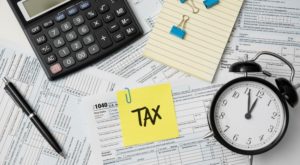Insolvency and Company Law in the UK is designed to regulate the conduct of companies and directors and protect the interests of creditors and shareholders.
The laws and regulations governing insolvency and company law in the UK are strict, and failure to comply with them can lead to severe consequences.
Hence, it is always recommended to take the help of insolvency investigation services to stay safe. In this article, we will discuss the breaches of insolvency and company law in the UK, and the potential consequences for those who commit them.
Breaches of Insolvency Law
Wrongful Trading
Wrongful trading occurs when a company continues to trade despite being insolvent or when it is clear that the company will become insolvent. Directors have a duty to cease trading when they become aware that the company is insolvent or when it is clear that the company will become insolvent. Failure to do so can lead to personal liability for the debt consolidation incurred during the period of wrongful trading.
Fraudulent Trading

Fraudulent trading occurs when a company continues to trade with the intention of defrauding creditors. This can include transferring assets or funds to another company or creating false invoices or financial statements. Directors who engage in fraudulent trading can be held personally liable for the debts of the company.
Preference Payments
Preference payments occur when a company pays one creditor before another. Directors have a duty to ensure that all creditors are treated equally in insolvency proceedings. Payments made to a preferred creditor can be considered a breach of this duty, and the director can be held personally liable for the debts incurred as a result of the preference payment.
Breaches of Company Law
Failing to Maintain Accurate Records
All UK companies must maintain accurate records of their financial planning, transactions, and operations. Failure to do so can lead to penalties and fines and can also lead to personal liability for the board of directors of the company.
Failing to File Accounts and Returns on Time

Companies in the UK are required to file accounts and returns with Companies House within a specific timeframe. Failure to do so can result in penalties and fines and can also lead to the compulsory strike off the register.
Breach of Fiduciary Duties
Directors of companies have fiduciary duties to act in the best interests of the company and its shareholders. Breach of these duties can include acting in their own interests or the interests of another party rather than in the interests of the company. Breach of fiduciary duties can lead to personal liability for the director and the potential for legal action by the company or its shareholders.
Conclusion
In conclusion, UK breaches of insolvency and company law can have severe consequences for individuals and companies. The consequences can include personal liability for directors, fines, penalties, and legal action. It is essential for companies and directors to understand their obligations under the law and to take steps to ensure compliance. Seeking professional legal advice can help to avoid breaches of insolvency and company law and protect the interests of the company, its shareholders, and its creditors.
Author Profile

- Guest Blogger & Outreach Expert - Interested in Writing Blogs, Articles in Business Niche | News Journalist By Profession in the United Kingdom
Latest entries
 BusinessJuly 1, 2025Wills for Business Owners: Safeguarding Your Enterprise and Legacy
BusinessJuly 1, 2025Wills for Business Owners: Safeguarding Your Enterprise and Legacy Business TipsJune 6, 2025Confidence That Connects the Message
Business TipsJune 6, 2025Confidence That Connects the Message GamingMay 9, 2025Why AI Personalization Is Key for the Next Generation of Betting Platforms?
GamingMay 9, 2025Why AI Personalization Is Key for the Next Generation of Betting Platforms? Business StrategiesMay 1, 2025Key Business Development Strategies for Fostering Sustainable Growth
Business StrategiesMay 1, 2025Key Business Development Strategies for Fostering Sustainable Growth




